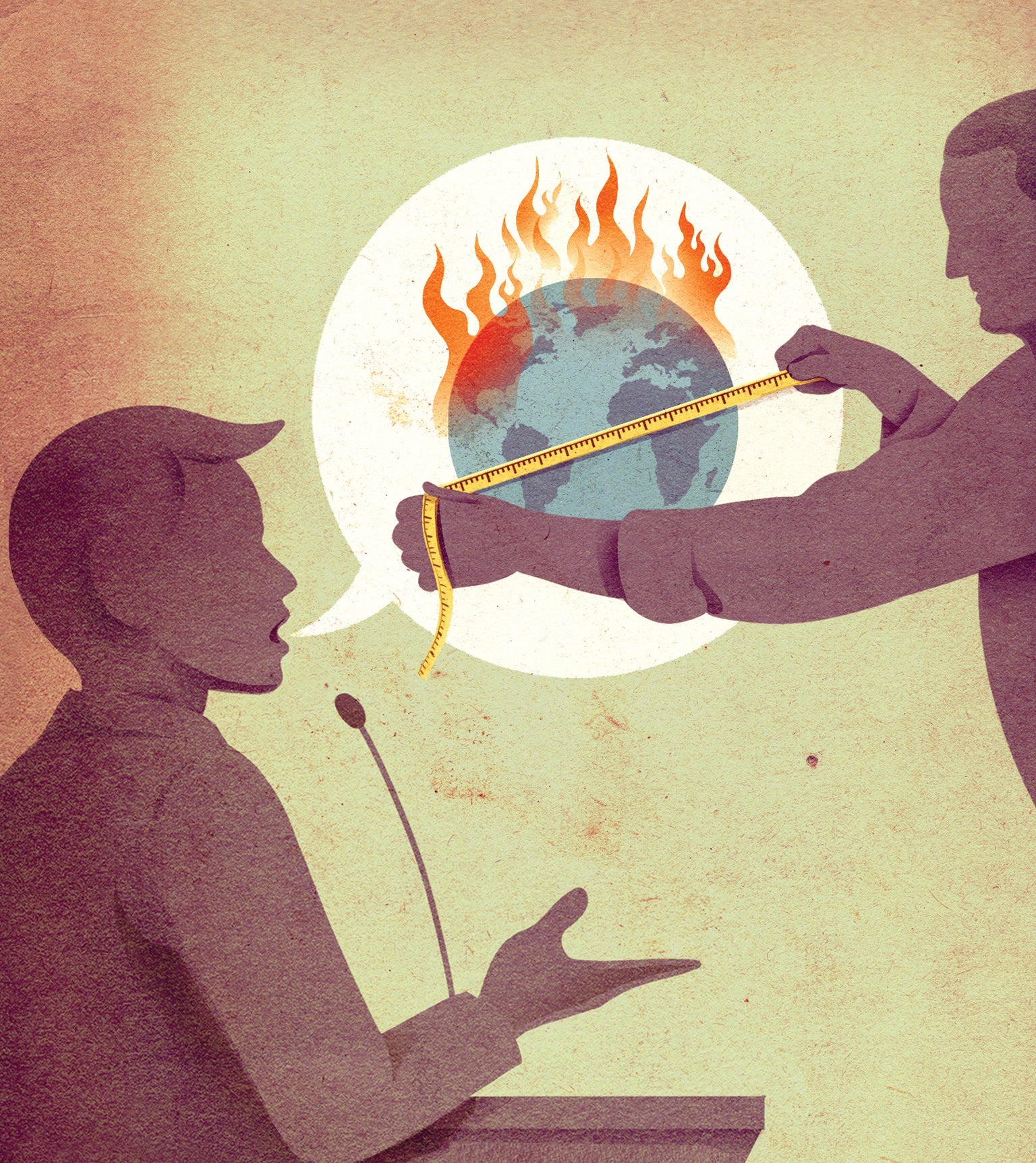Don’t Fact-Check Scientific Judgment Calls -BB

With the election cycle in full swing, it’s open season for journalists hell-bent on catching candidates out in lies and misrepresentations. In a world that has become relentlessly “truthy,” to borrow Stephen Colbert’s apt neologism, we need journalists, scientists and other experts to stand up for facts and keep the public debate honest. But when it comes to climate change, there is a tricky gray zone between facts and expert judgments.
One such zone has been on display since the release of a 2018 Intergovernmental Panel on Climate Change (IPCC) special report entitled Global Warming of 1.5 °C, whose authors concluded that we had 12 years left (now 11) to achieve radical reductions in greenhouse gas emissions to limit global warming. This alert has been widely cited, and politicians who have invoked it have been repeatedly fact-checked. But some of this checking makes the dialogue feel more like ice hockey—where “checking” is intended to disrupt play and establish dominance—than like an effort to help the public understand a complex but crucial issue.
In last July’s second Democratic debate, for example, former U.S. Representative Beto O’Rourke of Texas said, “I listen to scientists on this, and they are very clear. We don’t have more than 10 years to get this right.” And Pete Buttigieg, mayor of South Bend, Ind., said, “Science tells us we have 12 years before we reach the horizon of catastrophe when it comes to our climate.” The New York Times declared that both statements were “misleading,” insisting that any claim “that there are 12 or just 10 years until the point of no return goes beyond what the [IPCC] report itself says.” The Washington Post called 12 years “a figure that is frequently cited but often misused,” implying that Mayor Buttigieg was among those referencing it in error. And in September, after the CNN town hall on climate change, the Associated Press similarly fact-checked a statement by Senator Elizabeth Warren of Massachusetts that “we’ve got, what, 11 years, maybe, to reach a point where we’ve cut our emissions in half,” claiming that it was “out of step with science.”
But the IPCC wasn’t stating a fact in the first place. It was presenting a collective expert judgment—in this case, the consensus of 86 authors and review editors from 39 countries. Given this accounting, there will inevitably be a range of legitimate interpretations, and any translation will necessarily be a simplification subject to differences of individual opinion. With the finding understood in this way, the dynamic of fact-checking is misplaced. It’s as if, after 9/11, the media were fact-checking how politicians characterized the threat to America.
Moreover, consider the headlines that news outlets themselves offered when the report came out. From the New York Times: “Major climate report describes a strong risk of crisis as early as 2040.” The Washington Post: “The world has just over a decade to get climate change under control, [United Nations] scientists say.” The AP: “UN report on global warming carries life-or-death warning.” And just for fun, here’s what the New York Post had to say: “Terrifying climate change warning: 12 years until we’re doomed.”
Call me unfussy, but these headlines don’t strike me as substantively different from what the politicians said. They use the same language of crisis, of time limits, and of life and death that the fact-checkers rejected. And contrary to the AP report, scientists did, in fact, agree on a time frame.
Politicians do sometimes say things that are egregiously at odds with expert consensus; the overt denial of climate change is the obvious case in point. We should call out conspicuously false claims, such as an assertion that the world will end tomorrow (it might, but not from anthropogenic climate change) or that we can leave it to the marketplace to innovate a way out of the problem (theoretically possible, but practically impossible without the right government policies to drive and guide that innovation).
But let’s not fact-check things that aren’t facts. There is a world of interpretation—and therefore a range of justifiable readings—built into any expert judgment. We should discuss that reasonable range and flag claims that are obviously unreasonable. But we should not confuse judgments with facts. Doing so turns what should be a serious discussion into a score-driven hockey brawl.
If you want to read more science articles, you can visit our science category.
if you want to watch movies go to Film.BuradaBiliyorum.Com for Tv Shows Dizi.BuradaBiliyorum.Com, for forums sites go to Forum.BuradaBiliyorum.Com .



